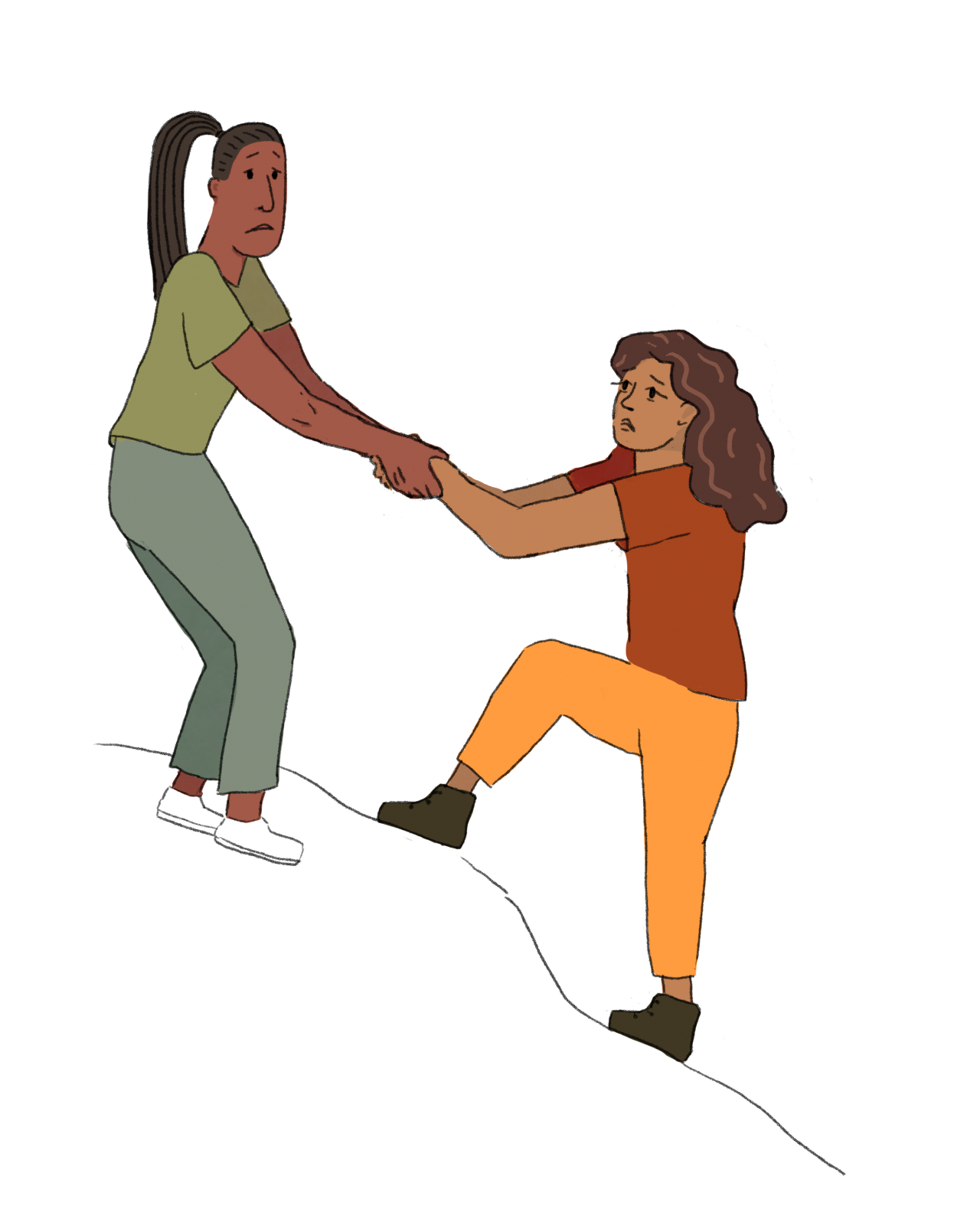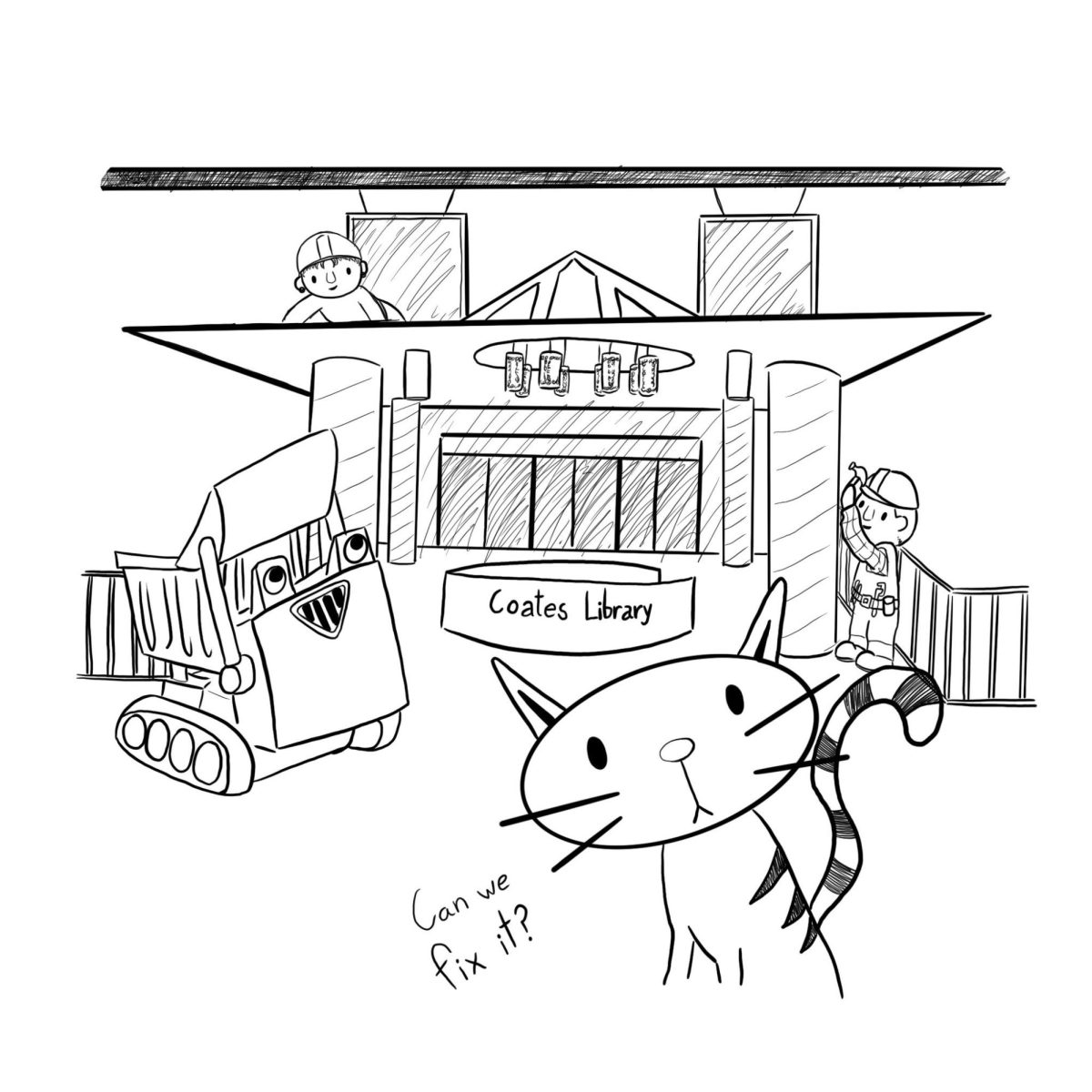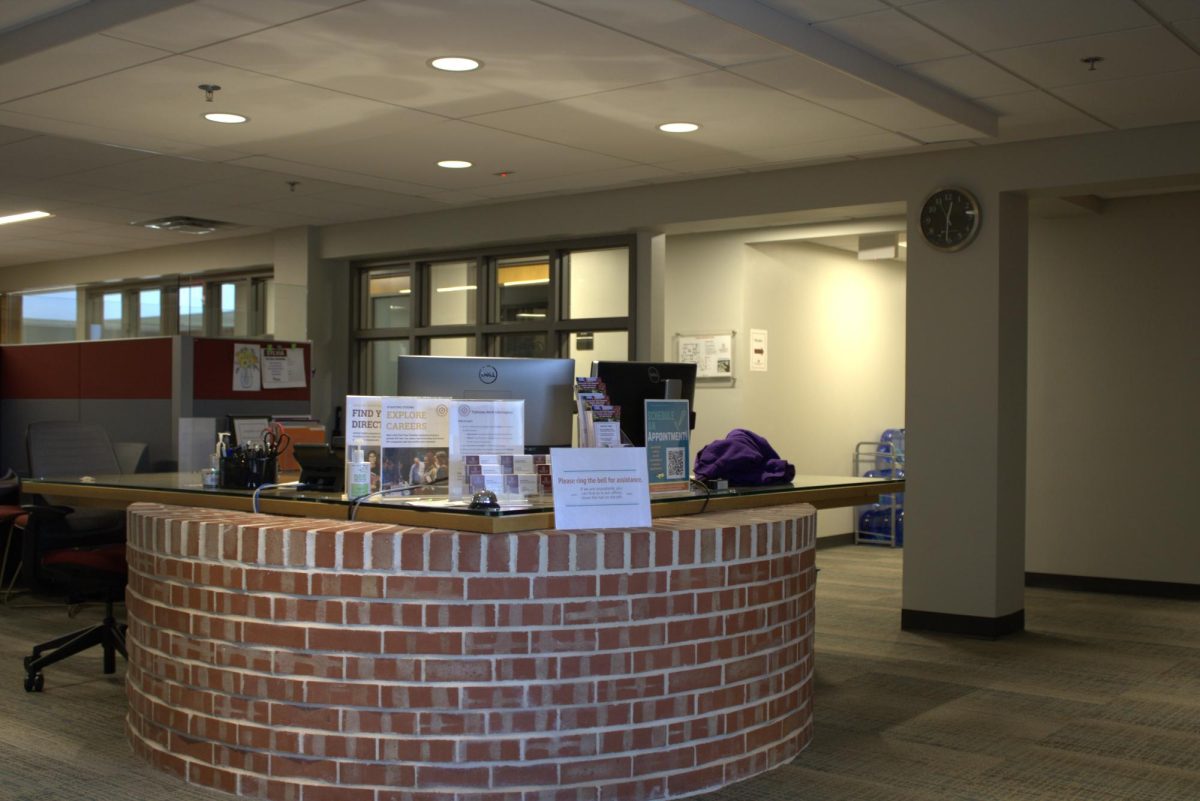illustration by Kate Nuelle
So you’ve had a bad day, or maybe even a bad month. Heck, maybe you’re having a bad year. If that’s the case, you’re not alone. Whether you struggle with mental health or not, we all still feel sad or numb at times. Feeling down is natural and normal, but it’s the way you behave when you feel this way that may or not be OK.
It’s really common for people to want to isolate themselves when they’re upset. Removing yourself from your support system is a form of self-destructive behavior that often goes unnoticed. Someone may start to isolate themselves when they feel depressed or angry because they’re embarrassed about how they feel; they don’t want to “bring people down” or they think they deserve to feel this way and therefore do not wish to be cheered up. Another unhealthy response to feeling down is to brush it off. There are many reasons people avoid working through their feelings. They may be scared to accept how they feel, but turning your back on your problems is not an attempt at solving them. Some see feeling sad as a weakness, but that is not the case. If you do think feeling upset is a sign of weakness, prove to yourself you’re strong enough to work through any conflict you face, as opposed to letting them overcome you.
So, instead of taking all your problems on yourself, or ignoring that you have any, use your support system! Do note, however, there are correct ways and incorrect ways to use your support system. We all need to accept the truth that we are capable of being toxic. Of course, most people think about toxicity within relationships with others, but we can just as easily be toxic towards ourselves by engaging in self-destructive behavior. The mental health community needs to start stressing the idea that when you’re hurting it does not mean you get to hurt others. This may seem obvious, but too often I hear something along the lines of, “Oh they’re just having a hard time,” as a defense for someone behaving in a harmful way. This should never be an excuse for treating others or ourselves poorly. When we aren’t at peak mental health we have a responsibility to recognize this and start engaging in productive behaviors.
So, how do we use our support systems in a productive way? There are many different ways you can properly take advantage of the caring people in your life. First, if you want to get your feelings out, try journaling. Journaling before talking to someone can come in handy because it may help you organize your thoughts or feelings before reaching out. Take time to just write out everything you’re feeling in a nonjudgmental space. Then, reach out to someone you trust and ask if you can talk with them about how you’re feeling. Always clarify with the person you’re talking to beforehand what you’re looking for from them. If you just want them to listen or you want them to give you advice, let them know. This will help them provide you with the right support. And remember, no one has a magic wand they can use to make you feel better all of a sudden. The people in your life are there as helping hands, but it’s up to you to put in the work to resolve your own dilemmas.
Outside of talking out your feelings, you should also use healthy coping mechanisms that will help when you’re feeling down. My best suggestion is to start a list of coping mechanisms that seem appealing to you. Really push yourself to include as many as you can because this list should be your go-to when you’re feeling too stuck to pull yourself up. Some examples of things you can include on your list are: get out of bed, shower, brush your teeth, put on an outfit that makes you feel good, work on some homework, eat a healthy meal, go for a walk, go to the gym, work on an art project, try to learn a new skill, throw on your favorite childhood movie, clean your room, or meditate. If you’re struggling to come up with some ideas just look up “list of healthy coping mechanisms.”
When you’re in a dark headspace you may feel stuck, and no matter how hard you try you just can’t see the light at the end of the tunnel. Trust me, as someone who has been there too many times to count, that light is there and will always be there. You will see the light again with time and when you take manageable baby steps towards getting better. And just remember, you can’t grow when you tear others down.
So you’ve had a bad day, or maybe even a bad month. Heck, maybe you’re having a bad year. If that’s the case, you’re not alone. Whether you struggle with mental health or not, we all still feel sad or numb at times. Feeling down is natural and normal, but it’s the way you behave when you feel this way that may or not be OK.
It’s really common for people to want to isolate themselves when they’re upset. Removing yourself from your support system is a form of self-destructive behavior that often goes unnoticed. Someone may start to isolate themselves when they feel depressed or angry because they’re embarrassed about how they feel, they don’t want to “bring people down” or they think they deserve to feel this way and therefore do not wish to be cheered up. Another unhealthy response to feeling down is to brush it off. There are many reasons people avoid working through their feelings. They may be scared to accept how they feel, but turning your back on your problems is not an attempt at solving them. Some see feeling sad as a weakness, but that is not the case. If you do think feeling upset is a sign of weakness, prove to yourself you’re strong enough to work through any conflict you face, as opposed to letting them overcome you.
So, instead of taking all your problems on yourself, or ignoring that you have any, use your support system! Do note, however, there are correct ways and incorrect ways to use your support system. We all need to accept the truth that we are capable of being toxic. Of course, most people think about toxicity within relationships with others, but we can just as easily be toxic towards ourselves by engaging in self-destructive behavior. The mental health community needs to start stressing the idea that when you’re hurting it does not mean you get to hurt others. This may seem obvious, but too often I hear something along the lines of, “Oh they’re just having a hard time,” as a defense for someone behaving in a harmful way. This should never be an excuse for treating others or ourselves poorly. When we aren’t at peak mental health we have a responsibility to recognize this and start engaging in productive behaviors.
So, how do we use our support systems in a productive way? There are many different ways you can properly take advantage of the caring people in your life. First, If you want to get your feelings out, try journaling. Journaling before talking to someone can come in handy because it may help you organize your thoughts or feelings before reaching out. Take time to just write out everything you’re feeling in a nonjudgmental space. Then, reach out to someone you trust and ask if you can talk with them about how you’re feeling. Always clarify with the person you’re talking to beforehand what you’re looking for from them. If you just want them to listen or you want them to give you advice, let them know. This will help them provide you with the right support. And remember, no one has a magic wand they can use to make you feel better all of a sudden. The people in your life are there as helping hands, but it’s up to you to put in the work to resolve your own dilemmas.
Outside of talking out your feelings, you should also use healthy coping mechanisms that will help when you’re feeling down. My best suggestion is to start a list of coping mechanisms that seem appealing to you. Really push yourself to include as many as you can because this list should be your go-to when you’re feeling too stuck to pull yourself up. Some examples of things you can include on your list are: get out of bed, shower, brush your teeth, put on an outfit that makes you feel good, work on some homework, eat a healthy meal, go for a walk, go to the gym, work on an art project, try to learn a new skill, throw on your favorite childhood movie, clean your room, or meditate. if you’re struggling to come up with some ideas just look up “list of healthy coping mechanisms.”
When you’re in a dark headspace you may feel stuck, and no matter how hard you try you just can’t see the light at the end of the tunnel. Trust me, as someone who has been there too many times to count, that light is there and will always be there. You will see the light again with time and when you take manageable baby steps towards getting better. And just remember, you can’t grow when you tear others down.




